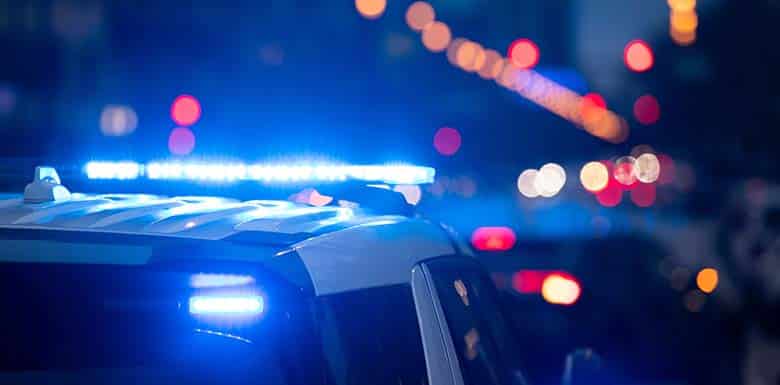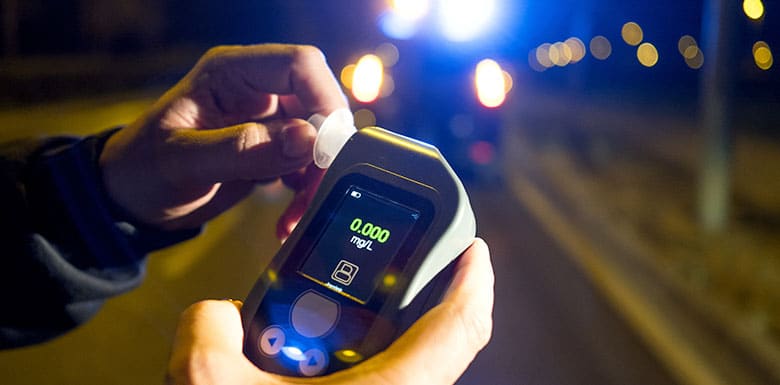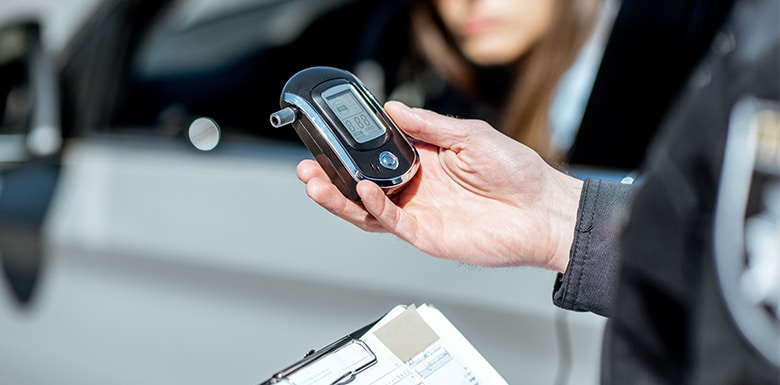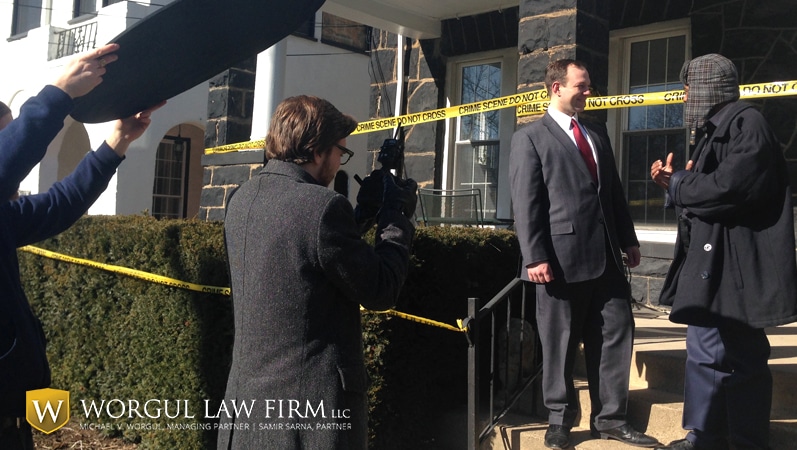What You Need to Know About Pittsburgh DUI Checkpoints

Allegheny County DUI Checkpoints
You’re driving through South Side, Etna, or any Pittsburgh hotspot when a bright orange sign suddenly appears: SOBRIETY CHECKPOINT AHEAD.
At best, this means your late-night drive could take an extra 20 seconds. At worst, the blurry words warn of your impending DUI arrest.
Sobriety, DUI, or “license” checkpoints are a way to deter impaired driving and reduce preventable accidents. And while these roadblocks are common statewide, you might not know much else about them. It’s essential to know how DUI checkpoints in Allegheny County operate, which rights you do and don’t have, and what to do if you’re facing DUI charges in Pennsylvania.
If you were arrested at a Pittsburgh area DUI checkpoint, contact our Allegheny DUI attorneys at 412-532-8658 for a free consultation.
Jump to a Section:
- What is a DUI Checkpoint?
- Are Sobriety Checkpoints Legal?
- Common DUI Checkpoints in Allegheny County
- Your Rights at a DUI Checkpoint
- What happens if you are arrested at a DUI Checkpoint?
- Contact us
What is a DUI Checkpoint?
A DUI checkpoint is a roadblock where police officers can randomly examine drivers for intoxication. They are not allowed to search the vehicle or its occupants, and the checkpoint should be established in the interest of public safety.
If a driver is stopped, they will be asked to present their license, insurance, and registration. This process typically takes around 20 to 30 seconds. If drivers do not show signs of impairment during this initial stop, the cops will allow them to continue through the checkpoint.
However, if a driver does show signs of impairment, cops will lead them to another area for further testing and questioning. Signs that a driver may be under the influence include:
- Bloodshot, glassy eyes
- Slurred speech
- Smelling of alcohol, marijuana, or other substances
- Struggling to provide documentation
Drivers with these signs or other signs of impairment will undergo a more complete assessment. They may be asked to perform a one-leg stand test, a horizontal gaze nystagmus test, a walk-and-turn test, or a breathalyzer test.
Are Sobriety Checkpoints Legal?

Many people have debated the ethics and legality of DUI checkpoints. And while sobriety checkpoints might be controversial, it’s legal in Pennsylvania, and the Constitution upholds their practice—so long as they are done lawfully.
There are certain instances where a DUI checkpoint can become unlawful due to police not obeying their duties and violating your rights. Learn the legal requirements of a DUI checkpoint below.
The DUI Checkpoint Stops Must Be Non-Discriminatory
Officers do not have individual discretion over whom they stop at a DUI checkpoint. Instead, they must follow predetermined guidelines on which drivers they can question.
Having guidelines allows the stops at a DUI checkpoint to be random and unbiased, ensuring all drivers have an equal chance of being questioned.
Here are two common methods police officers use for choosing vehicles at a Pittsburgh DUI checkpoint:
- Every Vehicle: One approach is to stop every vehicle passing through the checkpoint. This method ensures that all drivers are screened, leaving no room for bias or profiling. However, this method may require additional time and resources to be efficient.
- Every Nth Vehicle: Another method is systematic sampling, such as stopping every fourth vehicle. This approach is often used when there is a higher traffic volume since this method maintains a level of randomness while allowing for more efficient screening.
Police officers must follow the pattern they’ve established unless they have reasonable suspicion to stop another car outside of these guidelines, such as running a red light.
Officers Must Follow These Guidelines at DUI Checkpoints
According to two decisions made by the Pennsylvania Supreme Court, Com. v. Tarbert (1987) and Com. v. Blouse (1992), all DUI checkpoints in PA must meet the following requirements:
- Police can only stop vehicles for a brief amount of time
- Police may not search a vehicle or its occupants at a checkpoint
- Police must follow the objective, non-discriminatory criteria they established for stopping vehicles
- The DUI checkpoint must be in a fixed location for its set time
- The location, date, and time of a checkpoint must be announced to citizens in advance
- The checkpoint’s location must be selected based on historical data on DUI incidents
- Administrators must first approve the DUI checkpoint
Common DUI Checkpoints in Allegheny County
The exact locations of DUI checkpoints will vary, but that doesn’t mean they come without warning. The Constitution requires police officers to warn drivers of a checkpoint. A police division might post online or notify through the media about the location of every upcoming checkpoint.
You can see previous Allegheny County checkpoint locations here. Some of the most common include:
- Etna
- Strip District
- South Side
- Sewickley Bridge
Locations and times are typically selected based on drunk driving data. Similarly, police officers might have sobriety checkpoints during historically high DUI accidents, such as the Fourth of July, in a location with high traffic.
Your Rights at a DUI Checkpoint

It is essential to know your rights when stopped at a DUI checkpoint so you can avoid self-incrimination or challenge any criminal charges.
You Can Refuse to Answer Questions
Although you must respond to certain questions regarding your documentation if an officer stops you, you do not have to answer anything else. You have the right to remain silent, whether at a DUI checkpoint or elsewhere in Allegheny County.
You Can Refuse a DUI Test
You can legally refuse DUI tests. Declining to perform these tests is not an admission of guilt. However, refusing to perform a breathalyzer test may still have consequences in Pennsylvania, including license revocation. If this happens, your attorney can help you file an appeal, but you must act fast.
You Can Turn Around to Avoid a DUI Checkpoint
So long as you drive away without breaking any laws, you can turn around to avoid a DUI checkpoint. However, suppose you saw the sign indicating a checkpoint and were to make an illegal U-turn, speed away, or otherwise break traffic laws to avoid it. In that case, police officers have reasonable cause to pull you over.
What Happens if You’re Arrested at a DUI Checkpoint?
Depending on the exact charge and your record, DUI penalties in Pennsylvania can include license suspension, fines, jail time, an ignition interlock device, and more. If you were charged with a DUI at a checkpoint, it is imperative that you seek the help of a dedicated Pittsburgh DUI attorney. They can evaluate your case personally and help you determine the best angle to fight or reduce your conviction.
While a DUI charge may be frightening, you can challenge a checkpoint arrest in various ways. Your PA criminal defense attorney can argue against your charges if the checkpoint was not clearly marked, you were targeted, your Fourth Amendment rights were infringed upon, or another violation occurred.
Contact an Allegheny County DUI Attorney Today

If you were arrested at a Pittsburgh area DUI checkpoint, contact our Allegheny DUI lawyers near you at 412-532-8658 for a free consultation.
Whether your DUI charge resulted from a checkpoint or another traffic stop, it is imperative that you seek legal help immediately. These charges can have harsh penalties in Pennsylvania, from license suspension to time in jail. You deserve to fight these allegations with the help of an experienced attorney who has what it takes to handle even the toughest DUI cases.
At Worgul, Sarna & Ness, P.C., our DUI criminal defense attorneys can help you after a checkpoint mishap and move past these charges once and for all.
Contact our firm today at (412) 281-2146 to schedule a confidential consultation on your Pittsburgh DUI checkpoint case.
Pennsylvania Criminal Defense Attorney Review
Check out what Derek had to say about us on Avvo:
“I hired the firm not knowing what to expect, but once I talked to Mr Ness during my consultation he was professional and honest with me. He introduced me to the partner who took my case, Mr Sarna, who is hands-down and very good attorney and person. He was always there for me and always answered my questions. What was most important of all is that they deliver and give great results. If you are in a bind and need to catch a break from something unfortunate, hire this firm, they’ll help you out.”
Rating: 5/5 ⭐⭐⭐⭐⭐